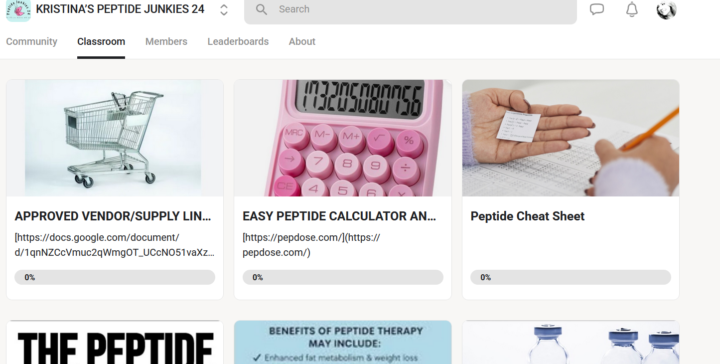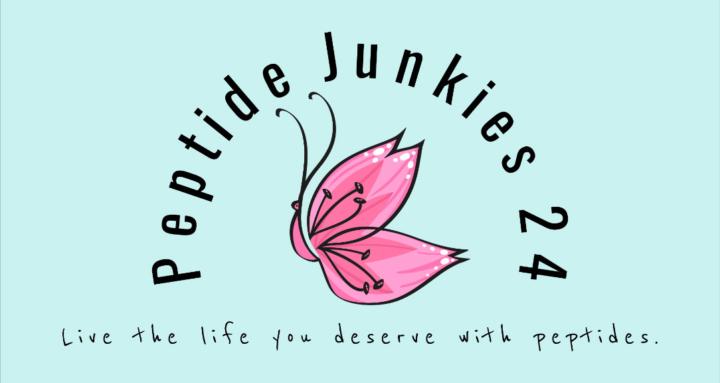
Write something
Pinned
Pinned
HOW TO NAVIGATE SKOOL 💪
I just wanted to take a minute to welcome everyone to my Skool!!! I am hoping you find everything educational and easy to navigate. I know this may be different from other apps, like Facebook. So, I'm going to provide a step by step navigation lesson for everyone that will hopefully make this journey much easier. 🙂 STEP 1: If you view the top of the page you will see "COMMUNITY", "CLASSROOM", etc. COMMUNITY is where you will find daily posts and announcements. CLASSROOM is where you will find pages of information for peptides well as other information to make your journey of researching as successful and easy as possible. STEP 2: Click on any box in the CLASSROOM. To navigate to specific pages, scroll to the bottom of the page. There you will see an option for the prior/subsequent pages. STEP 3: Once you click the box, you will see a blue hyperlink. STEP 4: Click on the blue hyperlink and the page will open providing information for that particular topic. If you have any issues opening any of the files or still have questions, don't hesitate to contact me. I'm always happy to help! Have a wonderful Sunday everyone! 🫶

Pinned
NEW TO PEPTIDES? THIS IS A MUST READ: THE ULTIMATE PEPTIDE GUIDE
***RESEARCH PURPOSES ONLY*** UPDATE: 10/28/25 Disclaimer: I created this group as an outlet for research subjects to save money for their research supplies. Everything is DIY (Do It Yourself). Subjects wishing to save money for their weight loss, as well as other optimization peptides, will find everything they need to know in this guide. I am not a resource to replace consultation with your primary care provider. If you have any questions, outside the scope of what I provide here and within the group, please feel free to consult with a health professional. THESE PRODUCTS ARE INTENDED AS A RESEARCH CHEMICAL ONLY. This designation allows the use of research chemicals strictly for in vitro testing and laboratory experimentation only. All product information available within this group is for educational purposes only. Bodily introduction of any kind into humans or animals is strictly forbidden by law and is not at all endorsed by this website. This product should only be handled by licensed, qualified professionals. This product is not a drug, food, or cosmetic and may not be misbranded, misused or mislabeled as a drug, food or cosmetic. With that said, I am happy that you have joined our group! We have a wonderful community of professionals including doctors, nurses, vendor owners, and a growing group of experienced peptide researchers willing to share their experiences. We are all here to help and guide you through the wonderful world of BIOHACKING. I recommend printing this guide. It contains, basically, anything and everything to make your journey as easy as possible. I have done all the research for you. *********************************************************************************************************** Q and A: What Is a peptide? “The fundamental nature of peptides as the building blocks of proteins, allow for the synthetic and in vitro mimicking of these endogenous substances that regulate specific cellular functions and facilitate an innumerable amount of biochemical processes in the body.”
BioPeps Winner !!!!
We have a Winner!!!! *Aron Hunley* you have won the 1st ever BioPeps L💜VE $100 gift-away! Everyone give him some celebratory congrats! And don’t forget our extra fun - we created a special code FOR EVERYONE - use LOVE50 thru end of February for $50 off your total. Why ? Because L💜VE Wins!!!

1-30 of 221

skool.com/kristinas-peptide-junkies-24-4251
Advance your peptide research with precise, science-driven guidance, expert community talk, and access to vetted suppliers, promotions, and giveaways.
Powered by






